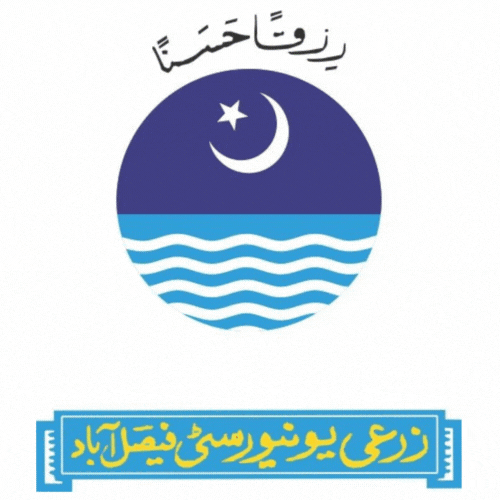
ACIAR's impact assessment specialist, Dr. Deborah Templeton addresses the participants of 10- Day ACIAR-UAF Training Workshop on “Concepts and Tools for Agricultural Research Evaluation and Impact Assessment”. UAF VC Dr. Iqrar Ahmad Khan and Dean Dr. Iqbal Zafar also visible
Speakers at 10- Day Australian Centre of International Agricultural Research, ACIAR-UAF Training Workshop on “Concepts and Tools for Agricultural Research Evaluation and Impact Assessment” have urged the need for credible evidence, transparency and clarity in research evaluation and impact assessment in order to obtain positive results in Agricultural research mechanism. Prof. Dr. Iqrar Ahmad Khan, Vice Chancellor University of Agriculture, Faisalabad (UAF), ACIAR's impact assessment specialist, Dr. Deborah Templeton, Prof. Dr. Iqbal Zafar, Dean Faculty of Social Sciences and Prof. Dr. Muhammad Ashfaq, Director Institute of Agricultural Economics spoke in inaugural session of Workshop at Main Library on Saturday morning. Dr. Iqrar Ahmad Khan said that it is widely recognized that growth in agricultural production leads to improved economic conditions in both developed and developing countries. He added that nevertheless, despite high returns to agricultural research, available funds are limited. He was of the view that there is an increasing demand from stakeholders, especially donors, for national and international research organizations to show that they are wisely investing the research money that have been entrusted to them. Dr. Khan urged the scientists they should apply impact assessment and research evaluation approaches with self-assessment of their inner self. He said that self assessment would enable them with more enthusiastic scientific approaches. He maintained that basic and applied sciences could not be succeeded without building bridges between knowledge and end users with social scientific tools. Dr. Deborah Templeton said that malnutrition and poverty has been remained serious problems in Asia and sub-Saharan Africa, and that severe environmental degradation has also been continues to threaten sustainable agricultural growth. She added that R&D organizations working in the developing World have been trying to transfer the results of their scientific innovations to the targeted beneficiaries. She said that the poor and disempowered population should be addressed in scientific solutions. She urged that we should have to ensure that benefits are likely to be sustainable in the future. Dr. Iqbal Zafar said that it is not enough just to have a tool kit of evaluation methods that can be readily applied to a diverse research portfolio. “Nor will the development of the necessary knowledge and skills ensure the application of priority setting methods at the institute level” he maintained. Dr. Zafar said it is also necessary to develop an environment where the evaluations are encouraged, relevant and used in strategic planning and priority setting exercises and in the development, implementation and evaluation of research programs and projects. Dr. Muhammad Ashfaq highlighting the main features of workshop said that researchers and scientists from various R & D organizations, institutions and Universities of all provinces are participating in this training workshop so that they can equip themselves latest research evaluation and impact assessment innovative tools being applied all around the Globe particularly in the field of agriculture. ASLP representative Dr. Munawar Kazmi also spoke on the occasion.

